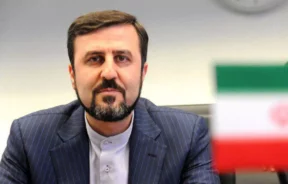Iran Surpasses 70 Locally-Produced Radiopharmaceuticals
WANA (Apr 19) – The head of the Atomic Energy Organization of Iran (AEOI), Mohammad Eslami, has announced a series of new achievements in nuclear technology, highlighting the country’s progress in radiopharmaceuticals, heavy water derivatives, and radiation accelerators. These developments, he said, are part of a broader strategy to improve public health and promote advanced scientific research.
Expanding Access to Cutting-Edge Nuclear Medicine
Speaking at a recent event, the AEOI chief emphasized that the organization’s core strategy is to activate technological initiatives and turn them into tangible, practical systems that directly benefit the public. Among these initiatives, the development and production of radiopharmaceuticals has become a central focus.
“Three new radiopharmaceuticals have recently been added to the national drug portfolio, raising the total number produced in Iran to over 70,” he stated. “Additionally, around 20 more are currently undergoing various stages of research, testing, and clinical trials.”
He noted that these medications are designed for high efficacy in treatment without side effects and offer highly accurate diagnostics. “Some of these radiopharmaceuticals are among the first of their kind globally, placing Iran among the few advanced nations capable of producing them.”
According to the AEOI chief, exports of these drugs to several countries have already begun, with global market opportunities expanding rapidly.
Heavy Water Derivatives and Global-Standard Technologies
In another significant development, the official revealed that Iran has produced approximately 300 types of heavy water derivatives at the laboratory level. These compounds are expected to play a vital role in transforming the pharmaceutical and healthcare industries, as well as other industrial sectors.
“This field was once monopolized by only a few countries,” he said. “Now, Iran has succeeded in developing products that meet international standards.”
One standout innovation is a neonatal screening kit that uses a single drop of blood from infants aged 3 to 7 days to detect up to 56 metabolic disorders. Early diagnosis through this method allows for simple and effective treatment of potentially life-threatening conditions.
Localizing Advanced Radiation Technologies
The AEOI chief also highlighted progress in developing linear accelerators and other radiation generators, achieved in collaboration with domestic knowledge-based companies. “Over the past three years, Iran has localized these technologies to meet a significant portion of the medical community’s needs,” he said.
He concluded by expressing hope that these advancements will serve as a strong pillar for Iran’s healthcare system, improving access to modern medical tools and enhancing the overall quality of life.












